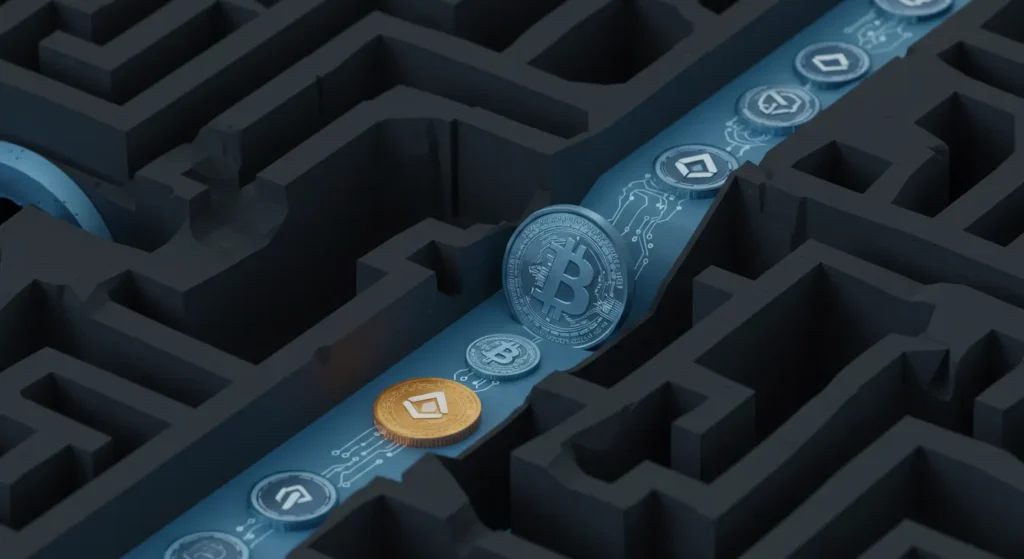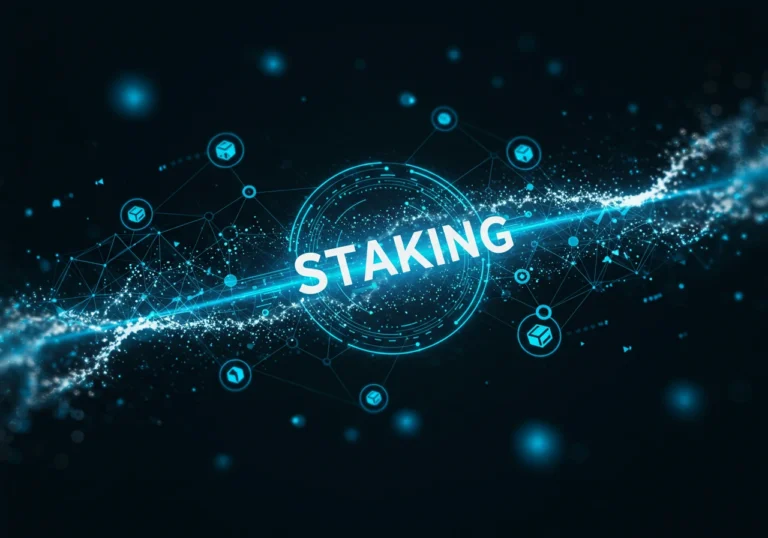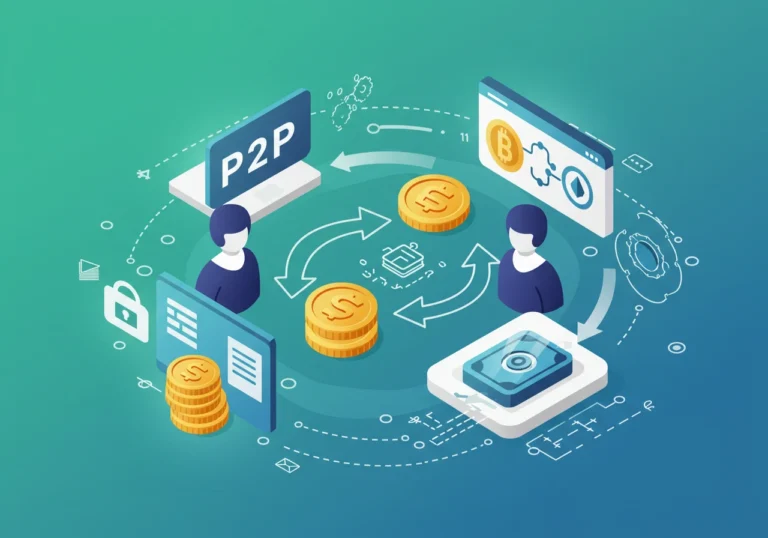Crypto Mixers: The Truth About “Cleaning” Your Coins
Ever paid cash for something personal? Maybe painkillers for that awful headache, or a gift you didn’t want prying eyes to spot? That little bit of privacy feels good, right? Well, some folks want that same feeling with their cryptocurrency. They use things called crypto mixers. Sounds fancy, huh? It’s really just a tool people hope will make their digital money harder to trace. Like hiding that red dollar in a stack of green ones.
But here’s the thing: using these mixers? It’s like walking a tightrope over a rocky canyon. Looks possible, but is it risky. I’ve seen friends get tempted by the promise of total secrecy, only to get burned. Let’s chat about what mixers actually do, why people use ’em, and why you might wanna think twice.

So, What Exactly Is a Crypto Mixer?
Imagine you have a bright, unique $20 bill. Everyone knows it’s yours. Now, you toss it into a giant box with thousands of other $20 bills. Someone shakes that box real hard. Then, you reach in and pull out a $20 bill. It’s still $20, but it’s not your special one anymore. It’s just… anonymous cash. That’s the basic idea.
A crypto mixer (sometimes called an anonymous bitcoin mixer, a secure cryptocurrency tumbler, or a privacy-focused coin mixing service) takes your coins, throws them into a big digital pot with coins from tons of other people, swirls it all around, and sends you back different coins of the same value. The goal? To break the link on the public record (the blockchain) between the coins you sent and the coins you get back. Poof! Trail gone? Well… maybe not so fast.
Why Would Someone Use This? (It’s Not Always Shady)
Hold on, don’t assume the worst! People have legit reasons for wanting privacy:
- “None of Your Business!”: Just like you wouldn’t want your nosy neighbor knowing your bank balance, you might not want everyone online seeing your crypto buys, sells, or donations. Blockchain is like a giant glass window.
- Stopping Snoops: If you keep using the same wallet address, companies or even hackers can build a picture of your habits. Mixing helps blur that picture.
- Safety First: Flaunting a huge crypto wallet online? That’s like shouting “Rob me!” Mixing can help hide the size and origin of your stash.
- Business Secrets: Companies might not want rivals easily tracking payments to suppliers.
But – and this is a big “but” – these tools (often advertised as untraceable digital currency blenders or hidden transaction mixer services) are also magnets for folks trying to hide stolen money or fund illegal stuff. That’s where the trouble really starts.
How Do These Mixers Actually Work? (Simple Steps)

Forget complex tech babble. Here’s the play-by-play:
- Find a Mixer: You go to a mixing website (often looking kinda shady, honestly).
- Send Your Coins: You ship your crypto (say, Bitcoin) to an address the mixer gives you. Like dropping your special $20 in the box.
- The Big Swirl: Your coins land in a giant pool with coins from hundreds of others. This pool is constantly churning – coins coming in, coins going out. This uses blockchain obfuscation tools – fancy words for “mixing stuff up”.
- Get Different Coins Back: After waiting a bit (could be hours or days), the mixer sends you back the same amount of crypto (minus their cut), but these coins come from other people in the pool. Your unique coins are gone. You get someone else’s.
- Pay the Piper: The mixer takes a fee, usually 1-5%. That’s how they make their dough.
Some mixers are run by a single person or company (centralized). Others are decentralized crypto laundering platforms, running on code (smart contracts), trying to cut out the middleman. Sounds better? Maybe. But it has its own problems.
The Big, Scary Risks (Why Mixers Give Me Sweaty Palms)
Okay, privacy sounds nice. But using a crypto mixer? It’s like juggling chainsaws. Here’s why:
- “Poof! Your Money’s Gone!” (The Exit Scam): This is the nightmare. You send your precious crypto to the mixer… and the website vanishes. Gone. Operator disappears. Support? Silence. Especially common with fly-by-night outfits or offshore crypto blending solutions. You’re left holding empty digital air. No bank to call, no insurance. Your coins? Vanished like a puff of smoke.
- “Dirty Money” Surprise: You think your coins are clean now? Think again. Experts (like those at big tracking firms) are super good at following crypto trails. If the coins you get back were involved in crime before they got mixed, they might still be flagged as “dirty.” Try sending those to an exchange? Bam! Account frozen. Investigation started. That anonymous altcoin shuffler might not be so anonymous after all.
- Hello, Law Enforcement! (Legal Trouble): This is huge. In lots of places, using a mixer can land you in hot water for money laundering – even if your money was clean to start with! Just trying to hide it looks super suspicious. Using something linked to dark web money cleaning services is basically waving a red flag at the cops. Authorities are cracking down hard.
- Fees That Bite: Mixing ain’t free! Those fees add up, especially on smaller amounts. You’re paying a premium for a service that might backfire.
- Tech Headaches & Oops Moments: Setting it up can be tricky. Wrong address? Delays confusing you? One little mistake, and your crypto could be lost forever in the digital void. Not fun.
- Decentralized Doesn’t Mean Safe: Those decentralized crypto laundering platforms? They avoid the “one guy runs off” risk, but the code running them can have bugs. Hackers love finding these bugs to drain the whole pool. Also, they might not hide your trail as well as you’d hoped.
- Hackers Love Mixers Too: Mixer websites are juicy targets. Get hacked? Your transaction details could be out in the open. Yikes.
Are There Any “Safe” Mixers? (The Hard Truth)
Looking for a truly secure cryptocurrency tumbler? A magic untraceable digital currency blender? Sorry, friend. That unicorn doesn’t exist.
- Centralized Mixers: Trust a stranger with your life savings? Yeah, didn’t think so. High scam risk.
- Decentralized Mixers: Less trust in one person, but now you trust complex code that can break. Still risky.
- CoinJoin (A Better Path?): This isn’t a traditional “mixer service.” Wallets like Wasabi or Samourai use it. Multiple people team up in one transaction to mix funds together. It’s peer-to-peer, no middleman. Generally the least risky way for more privacy, but it’s not foolproof and can still attract attention.
Bottom line: Any service screaming “100% ANONYMOUS! UNTRACEABLE!” is probably lying, illegal, or both. True, bulletproof anonymity via mixing is a fairy tale against today’s trackers.
What’s the Law Say? (Getting Stickier Every Day)
The rules around crypto mixers are changing fast and aren’t pretty:
- Bans Happening: The US has outright banned several big mixers (like Tornado Cash). Other countries are following. Using a banned mixer? Definitely illegal.
- Money Laundering Vibes: Even where not banned, using a mixer to hide any funds can look like money laundering. If questioned, you might have to prove your money was clean before mixing. Tough spot.
- Red Flag Central: Just using a mixer, for any reason, makes exchanges, banks, and tax folks super nervous. Expect frozen accounts and lots of questions.
Simply put: Using a mixer paints a giant target on your back legally. It’s asking for scrutiny.
Safer Ways to Get Some Privacy (Really!)

Want more privacy without the mixer madness? Try these first:
- Privacy Coins (Monero – XMR, Zcash – ZEC): These coins are built for privacy. Transactions are hidden by default using clever math. Often the best tech solution. (Though some exchanges are wary of them).
- Privacy Wallets with CoinJoin: Like Wasabi or Samourai for Bitcoin. Lets you mix with others directly, no sketchy third-party service needed.
- Fresh Addresses: Use a brand new wallet address every time you receive crypto. Makes it harder to link your transactions together. Simple, effective.
- Decentralized Exchanges (DEXs): Trade crypto without handing over your ID (KYC). More private for trading, though the blockchain trail itself is still public unless you use privacy coins.
These aren’t magic cloaks, but they’re way less nerve-wracking than trusting some offshore crypto blending solution or a dark web money cleaning service.
So… Should You Use a Mixer? (My Honest Take)
Look, I get the desire for privacy. Truly. But for almost everyone? Using a crypto mixer is a terrible, no-good, very bad idea.
- Losing everything is a real possibility.
- Legal trouble is a looming shadow.
- The “anonymity” often doesn’t work like you hope.
- The fees just eat your money.
Unless you have a rock-solid, completely legal, and desperate need for extreme privacy that justifies these insane risks (and you’re ready for potential fallout)? Just don’t.
Think of my buddy Maria. She wanted privacy for her freelance crypto earnings. Looked hard at mixers. Heard the horror stories – folks losing life savings, accounts frozen, authorities breathing down necks. She chose Monero (XMR) instead. Way less stress. She sleeps like a baby now.
Knowledge is Your Armor
Understanding crypto mixers isn’t really about using them. It’s about protecting yourself. If someone offers an “easy fix” to make your crypto “untraceable,” raise an eyebrow. Ask hard questions. Understand the massive risks involved.
Crypto offers amazing freedom, but it’s got its dark alleys. Crypto mixers are deep in one of the sketchiest. Play it safe. Protect your hard-earned coins. Real freedom comes from smart choices, not hiding behind risky tools that could blow up in your face. You got this.
🔑 Quick Mixer Facts
- What They Do: Try to hide where your crypto came from & where it’s going by mixing it with others’ coins.
- Why People Try Them: Privacy concerns, security worries, hiding illegal activity (big risk!).
- How It Goes Down: Send coins in -> Get mixed in a big pool -> Receive different coins back (minus fee).
- Why It’s Sketchy:
- Could Lose It All: Mixer might just vanish with your money (Exit Scam!).
- “Dirty” Coins: The coins you get back might be linked to crime, causing you problems.
- Against the Law: Using mixers is often illegal (money laundering!) or gets you major scrutiny.
- Privacy Isn’t Guaranteed: Experts can often still track it.
- Costly: They charge significant fees.
- Hacks & Mistakes: Easy to mess up; mixers are hacker targets.
- “Safe” Mixers? Nope. Centralized = trust issues. Decentralized = code risks. True invisibility? Myth.
- Legal Heat: Getting riskier worldwide. Big red flag for authorities.
- Better Options: Privacy coins (Monero/Zcash), Privacy wallets (Wasabi/Samourai), using new addresses, DEXs.
- Should You? For 99.9% of people: NO WAY. The dangers are way too high.
Table of Contents

Hello, I’m Edmilson Dias, founder of CoinBringer. I created this platform to guide people through the fast-moving world of cryptocurrency with clarity and safety. With years of research in blockchain and digital security, my goal is to translate complex topics into practical knowledge, offering reliable tutorials, safety insights, and guidance for both newcomers and experienced users.
Discover more from CoinBringer
Subscribe to get the latest posts sent to your email.







